How did you get into the industry?
My background is in fashion, I used to have my own clothing label; that’s where I started getting interested in what builds a brand – realising that the brand can be stronger than the products alone. So, when supplier issues meant I had to pause my label for a time, I moved into advertising … and never left.
Where are you based now and who do you work for?
I live on the North Devon coast and work at nearby Bray Leino. But with a lot of production in London I get a good balance of city and surf.
If you weren’t in your current industry, what would you be doing?
Back in fashion. The industry has obviously changed a lot since I left it – particularly over the past five years – but this constant evolution means there are limitless opportunities. Sustainability, for example, is currently a massive challenge.
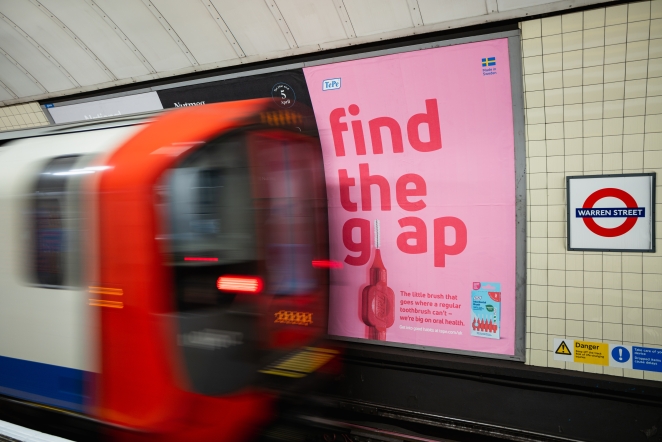
But there’s huge opportunity for smaller labels within that space; it’s harder for big brands to make significant changes fast. I think it’s a very opportunistic time for the creation and building of brands.
Can you explain your creative process? What makes it unique?
I like to keep a lot of ideas on the go simultaneously. There’s always more than one way to answer a brief. There’s a quote from Steve McQueen (Director) that describes the approach well: “I plant seeds and I see what grows, what comes to fruition. And then that’s what I make.”
You put a few ideas down, keep developing them and learn from idea to idea on how you can improve each. Eventually the stronger routes rise to the top.
In addition, I would say, and I’ll borrow another great director quote from Tika Waititi: “No idea is final.” Although I would add, ‘…it does have a deadline!’. At some point you need to make the call.
There’s also a lot to be said for feedback. Rather than take it as comments on the work, I take it as additional information to strengthen the idea. ‘Now I know this, what would I do differently?’ So, then feedback becomes really insightful in pushing the work – you’ve got an additional problem to solve.
You take the elements that are working, removing the stuff that isn’t, then reconstruct it, developing it in the process. I don’t like to only amend - unless it’s that simple of course.
How would you describe your style?
I work across a lot of different brands, sectors, audiences, and mediums… so in terms of tone and visual style there’s a lot of variety. But one thing I keep consistent is the foundation of a strong idea and message, regardless if it’s for branding or a campaign.
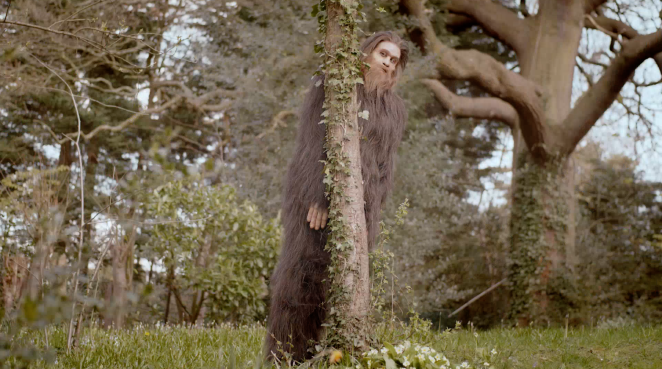
The execution always comes after. The key for me is exploring the elements that can build on that foundation, while maintaining its simplicity. Otherwise it may end up style over substance.
Which individuals do you gain inspiration from? Do you have any heroes in the industry?
Dave Trott said a couple of things at an industry talk years ago which have always stuck with me and inspired my approach:
- Simplicity of idea over complication of execution. He showed an ad of a commercial premises exploding, but it was played in reverse. The spot was for business insurance. It was just one locked off shot. It’s such a brilliant example of a powerful idea in its simplest form.
- Don’t follow what’s already out there. The core principle is to stand out. It’s so easy in our industry to get wrapped up in what’s on trend and follow that path, but your challenge is to do something different.
More recently, something which really inspired me – rather than someone – is Peter Jackson’s Beatles documentary, Get Back. Seeing the seed of an idea – and already knowing what it will eventually become, the magnitude of its potential, is an incredible example of how you shouldn’t give up easily.
Keep plugging away because it could be your biggest hit. That’s so inspiring and something I like to remind myself constantly.
What tips would you give to aspiring creatives looking for work?
One thing I do which I find really helpful is look back at my old work that I really liked and think how, knowing what I know now, could I have done better. It’s a great way of acknowledging what you’ve learnt.
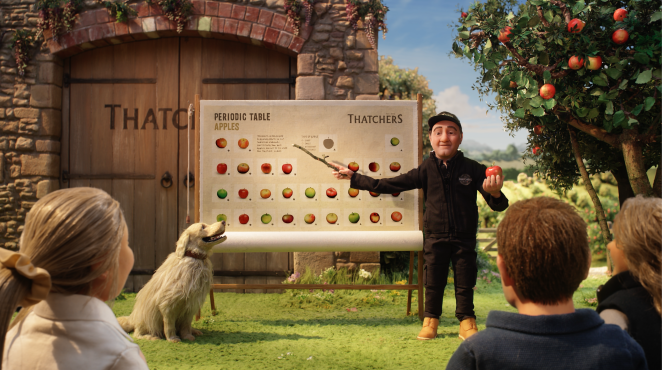
Look back at something that was the best it could be, you’ll see ways you could improve over time. It’s inspiring, motivating and a reminder of your constant growth and evolution. Also: ask lots of questions. Everyone loves to share their knowledge and there is always something to learn. Talk to everyone – from the taxi driver through to the DOP.
What tips would you give to other professionals to get more clients?
Take the client with you, involve them in the process. Because people love the creative part and to be included in that. And taking them on the journey all the way through from developing ideas gets them to understand and enjoy it.
They can see your thinking, that it’s not just gratuitous creativity. They see the consideration and thought, and watch the elements build. They recognise your value.
What kind of tools/kit/software could you not do without?
A pencil and scrap of paper are the two things no creative can do without obviously. Everything else is a bonus. I’d say AI is the biggest thing since pencil and paper in terms of influencing how I approach things.

But, for me at least, it’s not about it generating an end product or a start piece, it’s the middle bit – where you play – that AI allows you to explore the possibilities more effectively.
What’s your secret to staying inspired and motivated?
I keep my eyes and mind open. It’s very easy to get caught up in a bubble but it’s important to see things from other perspectives. And when it comes to even the most straight-forward briefs, try to find something you can use to express some creativity. If you can find a nugget in there it might turn into an award-winner. So keep your brain open as there may be more opportunity that what first appears.
Time is also very valuable. For example, three months after a job I might see something or have an idea about how I could have done it better. It’s frustrating as hell. But you have to keep that in mind and find or make the time to allow the inspiration to come to you. Keep moving and the ideas will follow.
What’s the work achievement you’re most proud of?
Although I’m proud of a lot of my work, the awards are an important thing for me. It’s not self-indulgence – it’s the fact your peers are saying they like it. That’s acknowledgement and validation that you’re doing good stuff. We’re a community and awards make you feel like you’ve earned your place, they push you to continuously improve and raise the bar.
Aside from awards, a real career highlight for me was when a particular Client was wanting a lot of ads for their various brands. We were making ad after ad and the opportunities were huge.
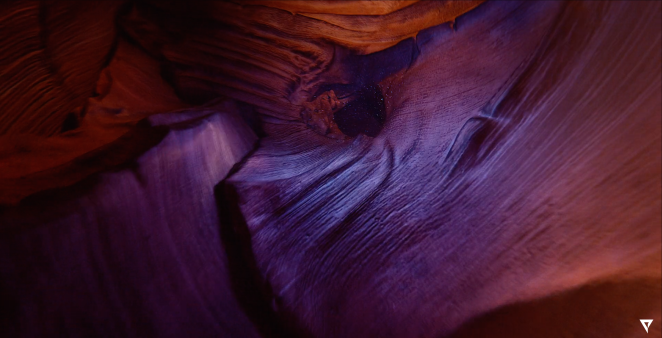
And there was a moment where it clicked – I’d learnt my craft enough to be confident in what I was doing but still learning and improving. That moment where you find your stride almost feels like luck but it’s not, it’s the [10,000] hours you’ve put in. And when you get to that point you can then push it further.
What is the one thing that you would change about the industry?
I think it’s really important for us as creatives to remember to enjoy it. Sometimes, the industry can feel very serious… it’s inevitable; we need to remember why we got into this.
Think back to when we were at school and wanted to draw for a living, or watched ads and thought we’d like to make them – let’s remind ourselves of that. What we do is fun and we got into it for the love of creating.
Any websites, books or resources you would recommend?
The Advertising Concept Book is great at demonstrating the single-minded idea but executing it with simplicity, distilling it down. It’s clever because they’ve taken ads and shown them as scamps, so you’re judging purely on the idea. It’s an important, direct book. And it practises what it preaches because the book itself is very pointed.
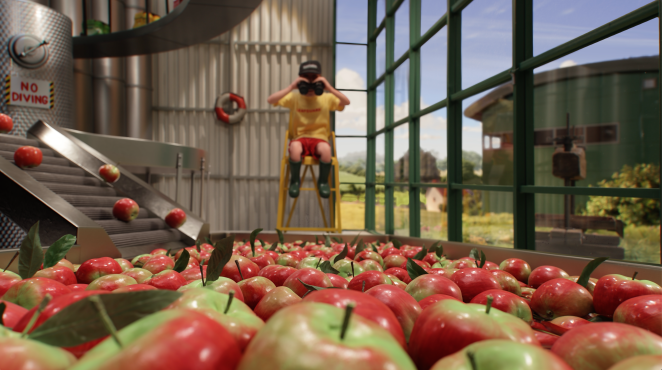
I’d also recommend David Hewitt’s Do Lectures. He was talking just recently about AI. And he too is very much an advocator of it not as a start/end point but as a game-changer in allowing you to play and explore. There are some very interesting and exciting things going on at the Do-Lectures. Although I’ve never got to visit – yet.

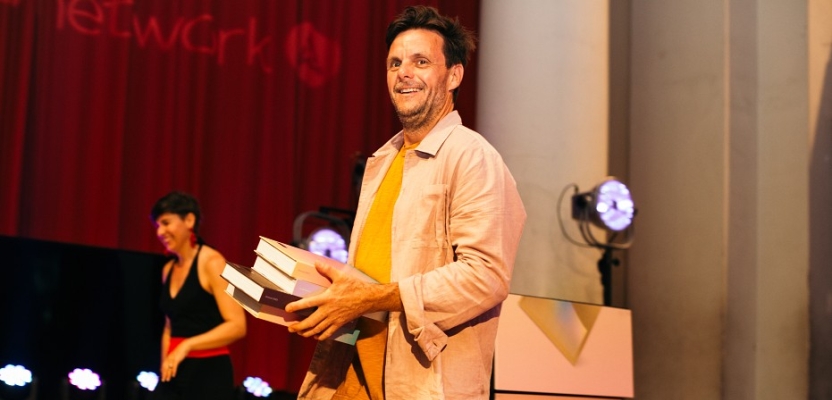


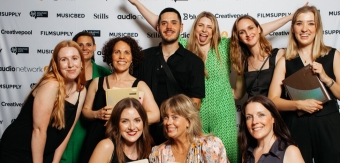



Nicola Roberts November 22nd, 2023, at noon
Inspiring, as always Mr F! Love your work.